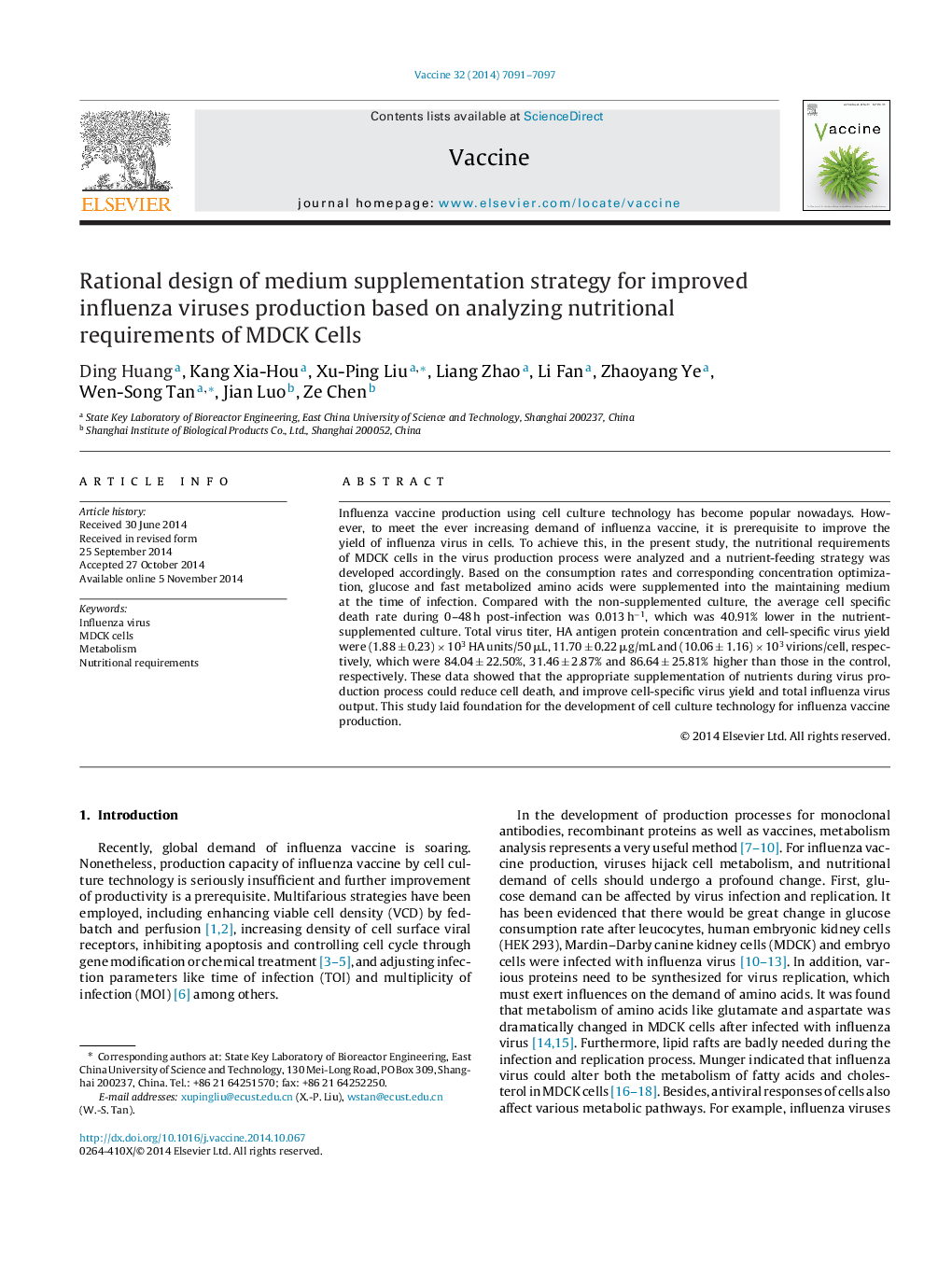| Article ID | Journal | Published Year | Pages | File Type |
|---|---|---|---|---|
| 10966445 | Vaccine | 2014 | 7 Pages |
Abstract
Influenza vaccine production using cell culture technology has become popular nowadays. However, to meet the ever increasing demand of influenza vaccine, it is prerequisite to improve the yield of influenza virus in cells. To achieve this, in the present study, the nutritional requirements of MDCK cells in the virus production process were analyzed and a nutrient-feeding strategy was developed accordingly. Based on the consumption rates and corresponding concentration optimization, glucose and fast metabolized amino acids were supplemented into the maintaining medium at the time of infection. Compared with the non-supplemented culture, the average cell specific death rate during 0-48 h post-infection was 0.013 hâ1, which was 40.91% lower in the nutrient-supplemented culture. Total virus titer, HA antigen protein concentration and cell-specific virus yield were (1.88 ± 0.23) Ã 103 HA units/50 μL, 11.70 ± 0.22 μg/mL and (10.06 ± 1.16) Ã 103 virions/cell, respectively, which were 84.04 ± 22.50%, 31.46 ± 2.87% and 86.64 ± 25.81% higher than those in the control, respectively. These data showed that the appropriate supplementation of nutrients during virus production process could reduce cell death, and improve cell-specific virus yield and total influenza virus output. This study laid foundation for the development of cell culture technology for influenza vaccine production.
Related Topics
Life Sciences
Immunology and Microbiology
Immunology
Authors
Ding Huang, Kang Xia-Hou, Xu-Ping Liu, Liang Zhao, Li Fan, Zhaoyang Ye, Wen-Song Tan, Jian Luo, Ze Chen,
